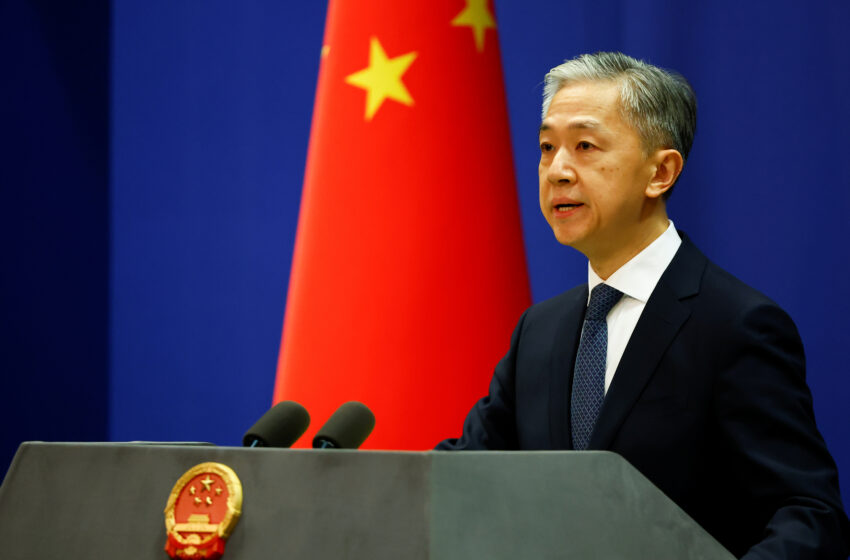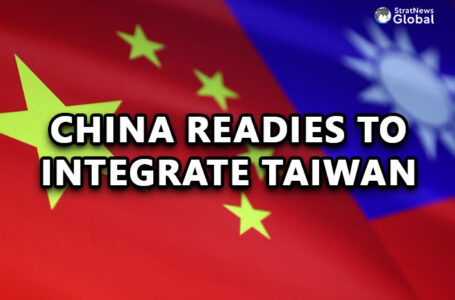Japan: PM Kishida Pays Tribute To War Dead At Yasukuni Shrine, China, Korea Condemn

FILE PHOTO: Chinese Foreign Ministry spokesperson Wang Wenbin speaks during a news conference in Beijing, China March 3, 2022. REUTERS/Carlos Garcia Rawlins/File Photo
On Monday, China strongly objected to Japanese Prime Minister Fumio Kishida’s ceremonial offering at a contentious Yasukuni shrine in Tokyo, which China and South Korea see as a symbol of Japan’s historical military aggression.
Kishida made a bonsai offering at the Yasukuni Shrine on Sunday, Japanese media said, showing live footage of a wooden plaque with the words “Prime Minister Fumio Kishida” attached to the offering, and other cabinet members also made offerings.
“The Yasukuni shrine is dedicated to 14 Class-A war criminals who were seriously responsible for the aggressive war,” foreign ministry spokesperson Wang Wenbin said in reply to a query at a regular press briefing.
The shrine is seen by Beijing and Seoul as a symbol of Japan’s past military aggression because it includes Japanese wartime leaders convicted as war criminals by an Allied tribunal.
“The Chinese side firmly opposes Japan’s negative moves about the Yasukuni shrine. The Chinese foreign ministry and the Chinese embassy in Japan have made solemn statements to Japan, respectively,” Wang added.
On Sunday neighbouring South Korea also protested against Kishida’s offering, voicing “deep disappointment” and urging Japanese leaders to show repentance for the wartime past.
The Yasukuni Shrine holds an important place in Japan’s traditon and history. It commemorates all those Japanese soldiers who died in modern wars. The relatives of many Japanese who died in these wars come here to pay their respects and conservative Japanese politicians say they have every right to remember their war dead.
But Japan’s colonial rule over Korea and China is recalled to this day, especially the cruelties associated with it. It is why every time a Japanese leader goes to the shrine, a hue and cry ensures in the region. It is seen as Japan’s refusal to recognize the injustice meted out to Chinese and Koreans during its colonial rule over these territories.
With Inputs From Reuters






















